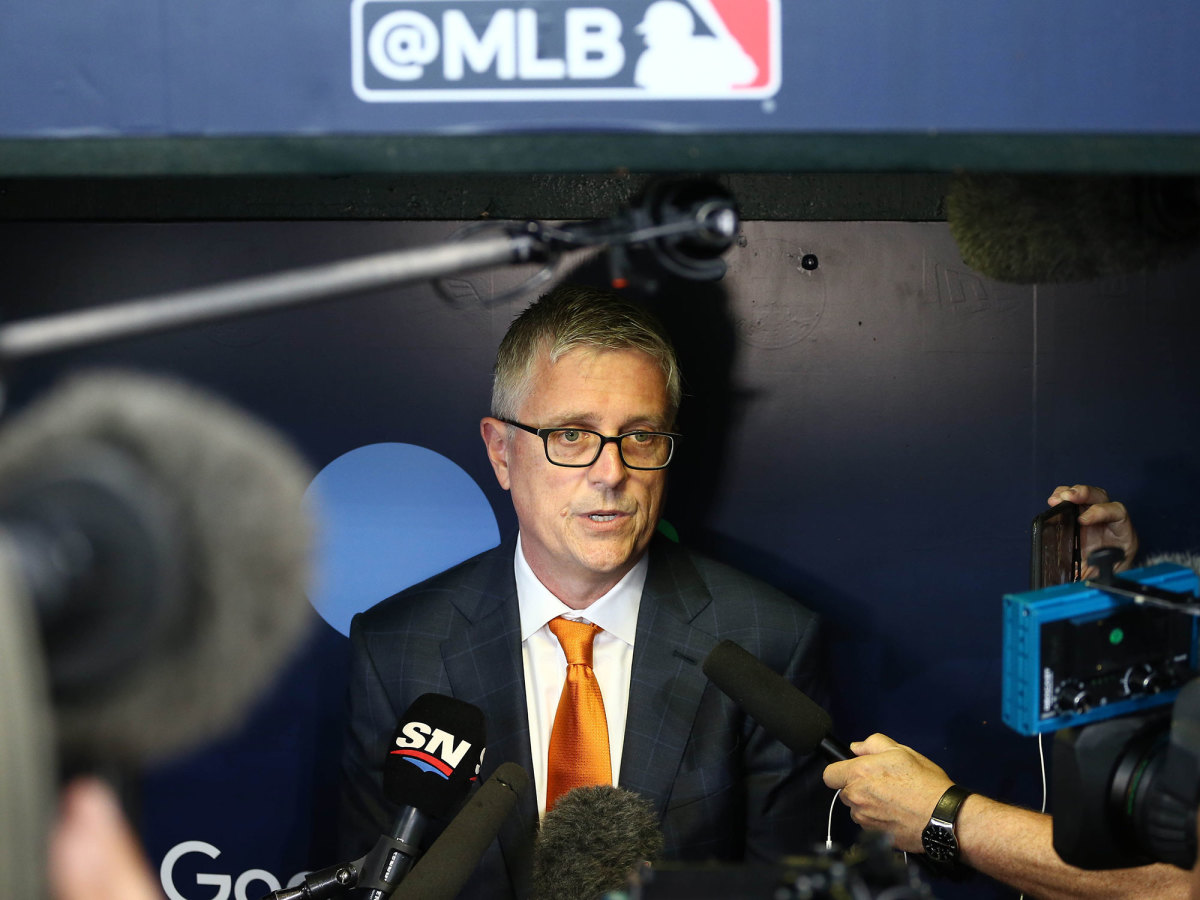Why Congress Might Get Involved With MLB's Sign-Stealing Saga

Baseball’s sign-stealing drama has moved through almost all the phases of modern scandal: bombshell story, sweeping investigation; suspensions, firings, uncomfortable press conferences; unhinged memes and hyper-focused internet analysis of minutiae found in old screenshots. Which has it ready for the next phase: Congress.
On Friday afternoon, Rep. Bobby Rush called for a congressional oversight hearing on baseball’s response to the scandal. With a letter to Rep. Frank Pallone, chair of the Energy & Commerce Committee, and Reps. Diana DeGette and Jan Schakowsky, chairs of the subcommittees on oversight and investigations and consumer protection and commerce, respectively, Rush called it an “ethical and moral imperative” to investigate.
“Major League Baseball is a vital part of American culture and has to be protected,” Rush, a Democrat from Illinois, told Sports Illustrated on Tuesday. “Baseball cannot be compromised.”

Rush wants the committee to look into the scope of illegal sign stealing—to gauge the appropriateness of the league’s response and to see whether it took sufficient action to block any of this from happening in the first place. “We must … determine if there was a systemic failure on the part of Major League Baseball that not only allowed this scandal to occur, but to fester,” his letter read.
An oversight hearing would be just the latest addition to a long history of the tangled relationship between MLB and Congress. There’s a natural link here to the most recent prominent government hearings on baseball—those about steroids, back in 2005, which similarly focused on questions of fairness and tried to determine if the league had adequately addressed the scandal on its own. But Congress has called MLB in to testify on other issues over the years, too. Bud Selig was questioned about his proposal for contraction in 2001; David Cone and Eddie Murray spoke at a hearing about baseball’s antitrust exemption in 1995; former commissioner Bowie Kuhn was brought in to discuss league expansion in 1976; Casey Stengel and Mickey Mantle spoke in front of the Senate Subcommittee on Anti-Trust and Monopoly in 1958; and Ty Cobb was the first witness in an earlier antitrust hearing about baseball from 1951. (If you noticed a theme there, you should have: MLB’s antitrust exemption, which functionally allows the league to work as a monopoly, has been discussed in front of Congress so much precisely because it’s such a foundational part of baseball’s relationship with the government.)
“We’ve had a role in professional sports since the beginning of professional sports,” said Rush, who’s been in this position before, when he wrote to former NBA commissioner David Stern in the wake of the Tim Donaghy scandal to note the potential for a hearing back in 2007. “Congress has that authority, and it’s used it many times in the past. This is nothing new.”
If the Energy & Commerce Committee wants to move forward with Rush's letter and schedule a hearing on sign stealing, what will it look like? It’s hard to say. “We’ll attempt to bring everybody before the committee who can add anything to our investigation,” Rush said. MLB’s investigation into the Astros—a separate one is pending on the Red Sox—included interviews with 68 witnesses, including 23 current and former players. All of this, and more, could presumably be in play before Congress.
The history here has had plenty of moments that felt like farce, even on deeply serious subjects. The steroid hearings included Mark McGwire’s infamous “I’m not here to talk about the past” and Rafael Palmeiro’s statement that his wife was qualified to give him injections because she gave allergy shots to their family dog. Half a century earlier, Casey Stengel answered the question, “Mr. Stengel, are you prepared to answer particularly why baseball wants this bill passed?” with a meandering monologue that ended up discussing the Yankees’ road attendance: “Of course, we have had some bad weather. I would say that they are mad at us in Chicago, we fill the parks, they have come out to see good material.…”
A sign-stealing hearing could offer more in this vein. (Could we see Jomboy on the stand?) But the gravity of the issue holds, and given the intensity of the response from players, as well as fans and others throughout the game, it isn’t likely to dissipate by spring training.
“When you’re in an arena of fairness and good sportsmanship, particularly in professional sports, and you start cheating—we all suffer,” Rush said. “We’ve got to take this very seriously.”
